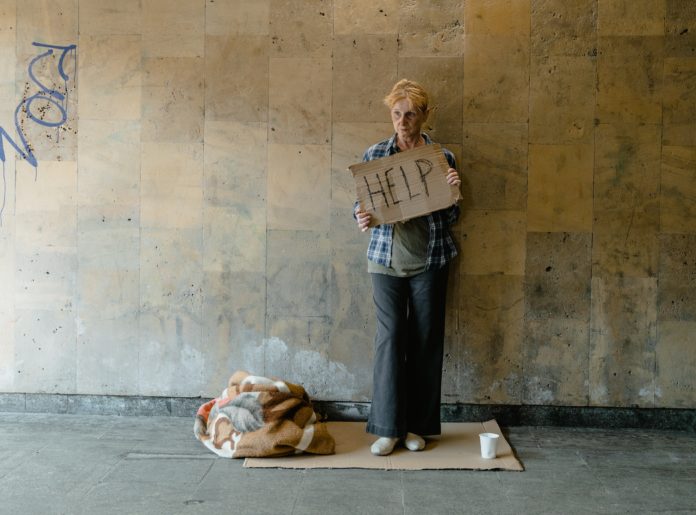Women make up 36% of the homeless population in Canada, and women who experience homelessness suffer from different stresses and mental health issues than homeless men.
For example, 90% of homeless single parents are women and women who experience homelessness also face more mental health issues. Furthermore, women’s homelessness is often overlooked because women are more likely to lean on potentially dangerous avenues to survive (e.g., engaging in sex work).
Previous research
Historically, when it comes to homelessness research, women and men are treated and/or assessed as equals. Most research therefore doesn’t take into account the unique differences that homeless women experience compared to homeless men.
Of the housing research conducted in Canada, the Housing First intervention — an approach to homelessness that provides immediate access to permanent housing as well as additional support and services — has been demonstrated to improve housing stability, quality of life, and community functioning for homeless people. But these studies have typically included a small sample size of women, therefore it is not clear whether the positive outcomes observed from the Housing First intervention are specific to men, women, or both.
The current study
The Mental Health Commission of Canada‘s research project on homelessness and mental health — At Home/Chez Soi — uses the Housing First model and includes a large sample of chronically homeless women from across the country. This trial therefore provided researchers with a great opportunity to explore how the Housing First approach specifically affects homelessness in Canadian women.
Dr. Patricia O’Campo, a scientist at the MAP Centre for Urban Health Solutions and a professor at the University of Toronto’s Dalla Lana School of Public Health, led the recent research article published in PLOS ONE that utilized the large sample population of women in the At Home/Chez Soi trial. The research assessed how homeless Canadian women’s housing stability and social and well-being outcomes differed if they participated in the Housing First intervention compared to treatment-as-usual interventions.
The study followed 588 homeless women over two years who were randomly housed to the Housing First group or the treatment-as-usual group (i.e., access to housing and services through other community programs). The women were located in either Vancouver, Winnipeg, Toronto, Montreal or Moncton.
To note, housing stability was defined as “living in one’s own room, apartment, or house, or with family, with an expected duration of residence of six months or more or tenancy rights.”
Study findings
The results demonstrated that on average, over two years, the Housing First group spent 75% of their days stably housed while the treatment-as-usual group spent 38% of their days stably housed. Both groups illustrated similar improvements from baseline to the two-year follow-up visit in social and well-being outcomes, but the Housing First group was observed to have a greater quality of life at six-month and one-year follow-up visits compared to the treatment-as-usual group.
Similarly, psychological community integration scores (i.e., attending a concert or meeting people for coffee) were significantly improved in the Housing First group at the six-month follow-up visit compared to the treatment-as-usual group.
Overall, the study results proposed that the Housing First intervention provided greater housing stability and more immediate positive social and well-being outcomes compared to treatment-as-usual interventions. However, the study’s findings are similar to those found in studies consisting of mostly men.
What’s next?
Although this study did not find gender differences in how the Housing First intervention affects housing stability and social and well-being outcomes, this article will hopefully pave the way for more women-focused housing research. In turn, this will lead to the design of women-specific housing interventions and programs required to confront the unique experiences that homeless women experience in Canada.








































